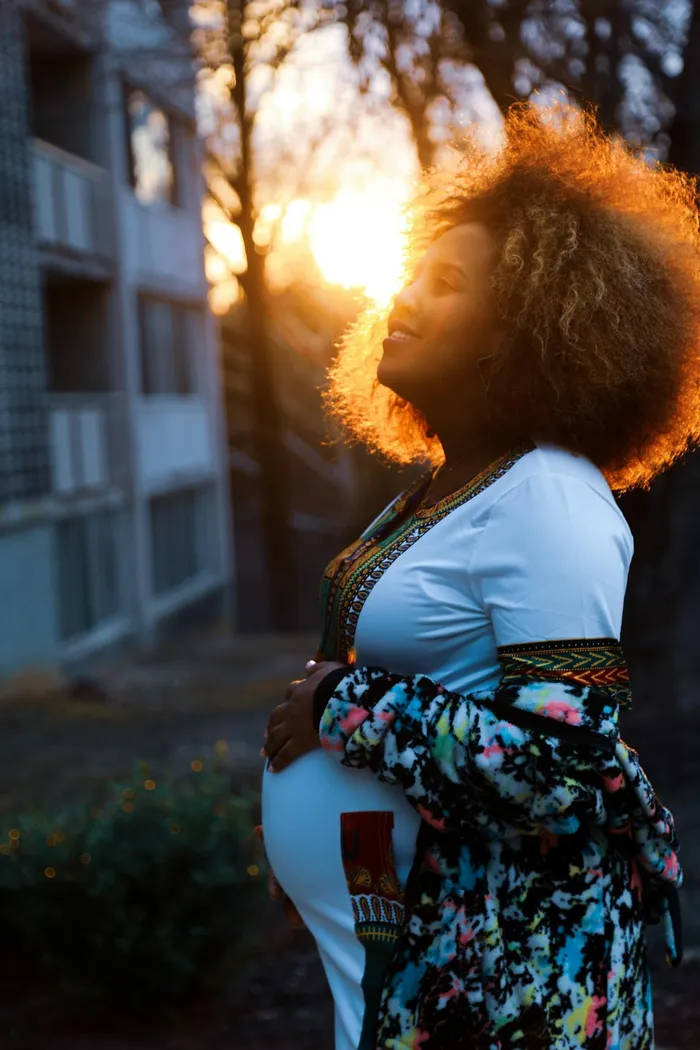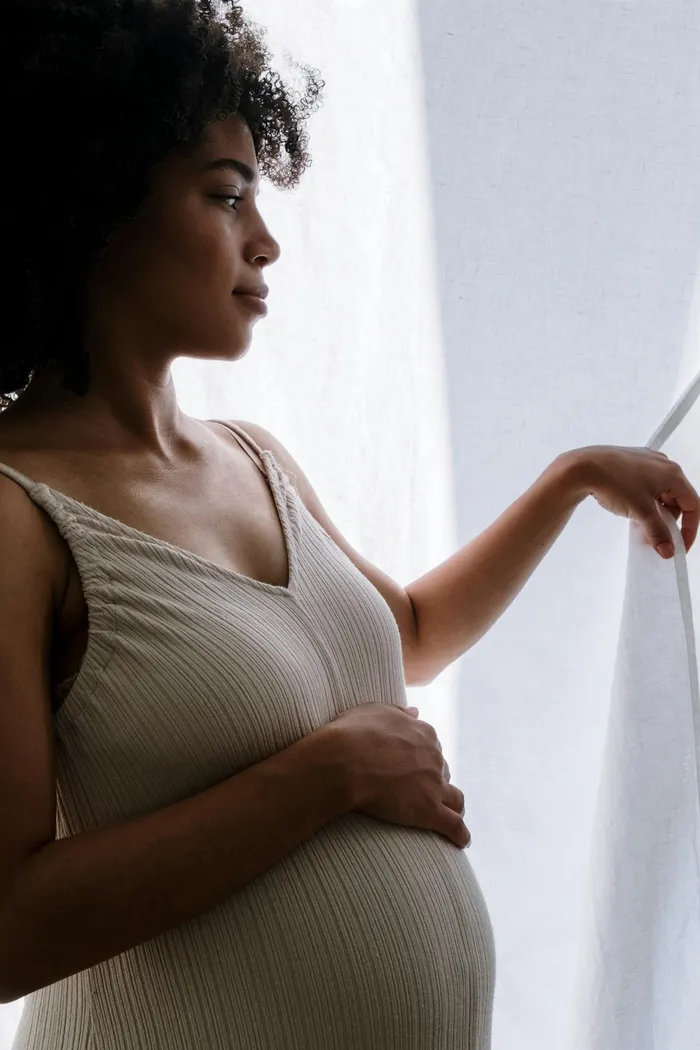Your hair doesn’t have to fall out after baby: a guide to postpartum hair loss
POSTPARTUM HAIR LOSS

While hair may seem like just one aspect of the postpartum reality, it often embodies larger themes of identity, self-care, and control.
Image: Ermias Tarekegn/Pexels
Pregnancy is a journey full of joy, change, and surprises.
While we often talk about the glow, the strong nails, and the thick, shiny hair, the postpartum chapter can come with its own set of challenges, especially the hair loss.
If you’ve noticed extra strands on your pillow or clogged your shower drain after having a baby, you're not alone, and you’re not doing anything wrong.
Postpartum hair loss is one of those hush-hush realities of motherhood that catches many women off guard.
You spend nine months basking in compliments about your “amazing hair”, only to feel like it’s falling out in handfuls a few months after birth.
It’s scary, it’s emotional, and it’s completely normal.
What’s happening with your hair after birth?
Dr Kashmal Kalan, medical director of Alvi Armani Hair Restoration Clinic in Sandton, explains that what you’re experiencing is your body’s way of resetting after pregnancy.
“During pregnancy, high levels of oestrogen keep hair in its growing phase, which is why it looks so thick and full."
"After birth, hormone levels drop and a large number of hair follicles move into the resting phase, leading to noticeable shedding around three to four months postpartum.”
This shedding phase, medically called telogen effluvium, is temporary.
According to Kalan, most women see their hair begin to regrow within six to 12 months, often before their baby’s first birthday.
But that doesn’t mean the emotional toll is easy to brush off.
For many new mothers, this change feels like yet another piece of their identity shifting.
“Hair loss can be deeply personal,” he says.
"You’re already navigating sleepless nights, healing, and a new routine. Seeing your hair come out in clumps can push your confidence over the edge.”

Beyond hormonal changes, factors such as stress and poor nutrition also play a significant role in hair loss.
Image: Cottonbro Studio /Pexels
And he’s right!
While the focus during postpartum is rightly on the baby, moms often feel invisible or overwhelmed.
Something as ‘superficial’ as hair loss may seem small, but in the context of body changes, hormonal fluctuations, and identity shifts, it can feel huge.
That’s why emotional support from partners and family is so vital.
Kalan advises that partners play a key role: “Reassure her. Remind her it’s normal. Research treatment options together. That kind of emotional labour counts.”
What makes postpartum hair loss worse?
Aside from the hormonal shift, stress and poor nutrition can aggravate hair loss. The postpartum phase is physically demanding, and if a new mom isn’t eating well or taking care of herself, it can delay hair recovery.
Kalan suggests continuing prenatal vitamins after birth, especially if breastfeeding.
“Nutrients like iron, B12, and folic acid are crucial for hair regrowth,” he says.
Also, a balanced diet and staying hydrated go a long way in supporting recovery.
How to care for your hair during the shedding phase?
While you can’t completely stop postpartum shedding, you can manage how you treat your hair during this time:
•Avoid harsh chemicals like bleach or relaxers.
•Skip tight hairstyles like braids or slick buns that can pull on fragile hair.
•Use wide-tooth combs and avoid aggressive brushing. Maintain a nutrient-rich diet. Johns Hopkins Medicine asserts that eating a balanced diet rich in essential nutrients supports hair health.
Focus on foods high in:
•Protein: Lean meats, eggs, and legumes.
•Iron: Spinach, lentils, and fortified cereals.
•Omega-3 fatty acids: Fatty fish like salmon and flaxseeds.
•Vitamins B, C, D, and E: Fruits, vegetables, nuts, and seeds. These nutrients help nourish hair follicles and promote growth.
Continue prenatal vitamins
Postpartum women are often advised to continue taking prenatal vitamins, as they contain essential nutrients like biotin, iron, and folic acid that support hair regrowth.
Manage stress: High stress levels can exacerbate hair loss.
Incorporate stress-reducing activities into your routine:
•Practice mindfulness, meditation, or deep breathing exercises.
•Engage in light physical activity like walking or yoga.
•Seek support from family, friends, or support groups.
Drink your fluids, mommy: Drinking plenty of water keeps your body and scalp hydrated, promoting healthy hair growth.
Consider natural remedies
Some women find natural oils beneficial for scalp health:
•Rosemary oil: May promote hair growth when massaged into the scalp.
•Amla oil: Traditionally used in South Asian cultures to strengthen hair.
Consult a healthcare provider: One treatment gaining popularity is PRP (platelet-rich plasma) therapy.
It involves drawing a small amount of your blood, extracting the plasma, and injecting it into your scalp to encourage regrowth.
PRP uses your cells, so there’s no risk to breastfeeding mothers.
Hair might seem like just one part of your postpartum reality, but it often represents so much more: identity, control, and self-care.
The most empowering thing you can do is educate yourself, seek support, and remember this is temporary.
Related Topics: